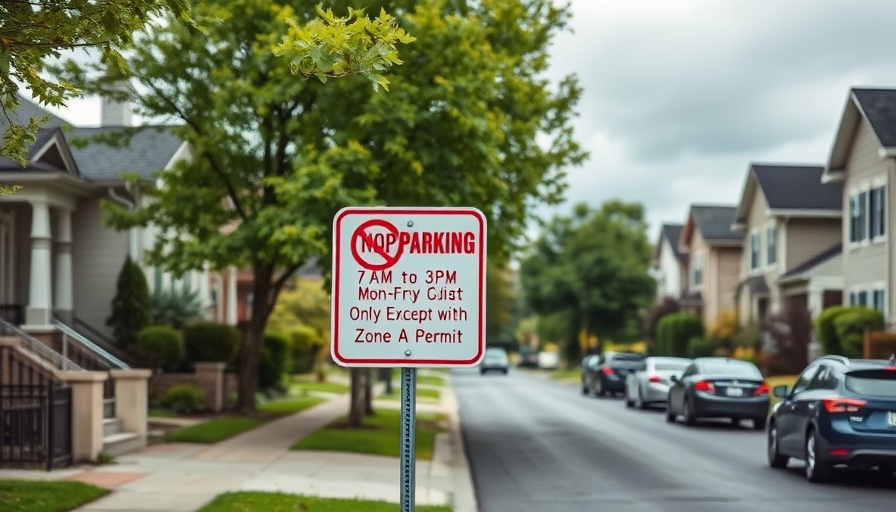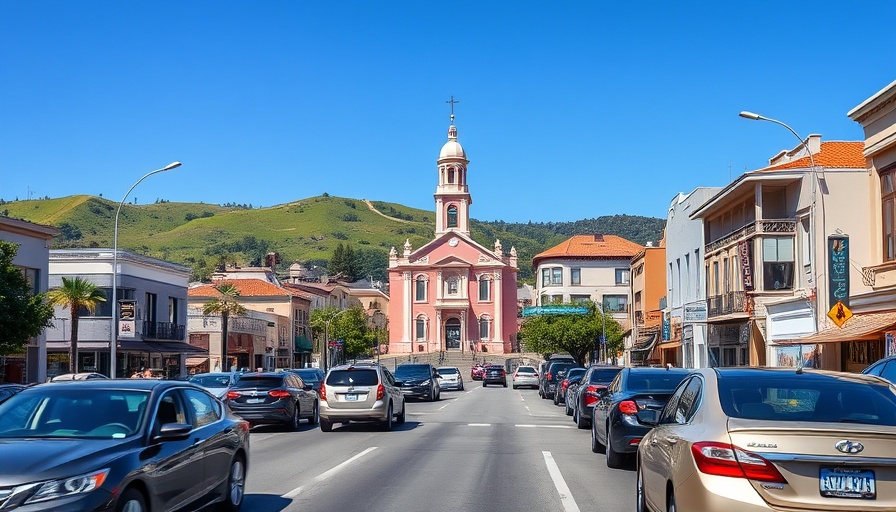
Understanding the Shift: Larkspur's Parking Restrictions
As the school year approaches, Larkspur has solidified its commitment to managing parking challenges around Redwood High School by extending its parking restrictions. Initiated in 2019, this program was a direct response to complaints from local residents about litter, reckless driving, and improper parking caused by students in the area. The city's latest decision follows the evaluation of a pilot program, taking community feedback into account to ensure a safe living environment for its residents while addressing the needs of high school students.
The Program's Evolution: From Setup to Implementation
The goal of the preferential parking program is clear: safeguard the residential community from disruptive student behaviors. With significant police involvement costing nearly $7,300 annually, the program runs a tight financial balance, bringing in an estimated $17,000 through citations. Importantly, statistics demonstrate resident support—80% of surveyed locals favored continuing the current setup without the imposition of permit fees. This community-driven approach fosters better relationships between residents and students while maintaining the integrity of neighborhood dynamics.
The Residents’ Perspectives: Voices Behind the Data
Community input has been pivotal in shaping Larkspur's parking management strategy. Feedback collected reveals a mix of usability concerns and suggestions for improvement, such as increasing signage visibility. City Clerk Alison Foulis noted that many residents expressed the need for better-marked restrictions, which indicates a willingness to collaborate in refining the program. The importance of communication between the city council and its constituents cannot be overstated, as it builds trust and demonstrates responsiveness to local needs.
Future Trends: What Lies Ahead for Parking Solutions?
With the impending closure of Redwood's east parking lot for solar panel installation, the influx of student and faculty parking into nearby residential areas is a pressing concern. The city is considering alternative solutions, including implementing two-hour parking zones for non-residents, although this would incur considerable additional enforcement costs. Local officials must balance the evolving needs of both students and residents while proactively planning ahead to mitigate potential conflicts.
Diverse Perspectives: A Balancing Act
Discussions within the Larkspur City Council have sparked a vital conversation about the philosophy of public parking. Questions have arisen about whether residents deserve exclusive rights to public streets, revealing the diverse viewpoints that shape local governance. Some council members voiced concerns about the practicality and fairness of restricting access to public spaces solely for residents, prompting a deeper exploration of community equity and shared access.
Challenges Ahead: Risks and Considerations
As the new school year approaches, challenges will inevitably arise. Concerns related to student safety, neighborly relations, and the potential for increased fines highlight a complex dynamic that requires ongoing dialogue. Equally important is recognizing and addressing the potential backlash from students impacted by these restrictions. Solutions will need to encompass understanding, patience, and an appreciation for differing perspectives to ensure community harmony.
Conclusion: An Invitation for Active Participation
As local residents, your insights and participation in discussions around parking restrictions play a crucial role in shaping Larkspur's community framework. Engaging with city council meetings, providing feedback, or advocating for potential solutions ensures that everyone has a hand in creating a functional balance within our neighborhoods.
 Add Row
Add Row  Add
Add 




 Add Row
Add Row  Add
Add 

Write A Comment